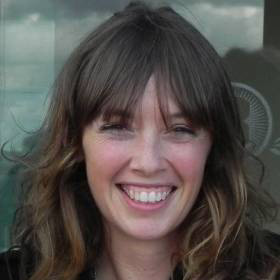
“I believe female researchers bring an openness and sensitivity to people and their places, which provides a strong foundation for the integrative and collaborative research we need.”
—— Dr Carmen Elrick-Barr
Dr Carmen Elrick-Barr is a human geographer with over 15 years experience working in the academic and private sectors. She currently holds two research fellow positions relating to coastal governance (University of the Sunshine Coast, QLD) and coastal and marine resource management (University of Western Australia, WA). Carmen has worked for international development agencies (e.g. AusAID, USAid) and national and municipal governments in the Pacific, South-east Asia, Australia and Europe on coastal climate change issues. She is the state rep for Western Australian branch of the Australian Coastal Society.
Q: What inspired you to pursue a career in scientific research?
A: I believe my passion for scientific research has evolved from a general curiosity in ‘how things work’ and in particular ‘how decisions are made’. I have always had a close connection to the coast, and following honours research I was fortunate to work with a leading coastal practitioner on climate risk in the Pacific. Working with local communities and the global organisations that sought to support them shed insight into the challenges of coastal governance and led me to undertake PhD research on how individuals and communities respond to change. As a researcher I have the privilege of sharing people’s stories, their challenges and successes, and seek to do this in a way that supports improved coastal governance.
Q: Have you ever been anxious? What are the sources of anxiety? How do you relieve anxiety?
A: I do get anxious, but rarely because of my career in scientific research. If anything, for me anxiety comes from a fear of not doing justice to the people’s stories I seek to understand and share. While as a project-based researcher, regular employment can also be a source of anxiety. I manage anxiety through regular exercise – running, Pilates, and of course, being on the beach!
Q: Gender equality and the empowerment of women and girls will make a crucial contribution. In your current field of study, what unique research perspectives do you think female researchers can contribute?
As human geographers, we seek to understand the interrelationships between people and place. I find inspiration from many successful female human geographers who raise poignant questions that expose issues of equity and justice in climate change adaptation, who seek transformational change in the systems and processes that inhibit agency and who have an innate ability to compellingly communicate their research. I believe female researchers bring an openness and sensitivity to people and their places, which provides a strong foundation for the integrative and collaborative research we need.
